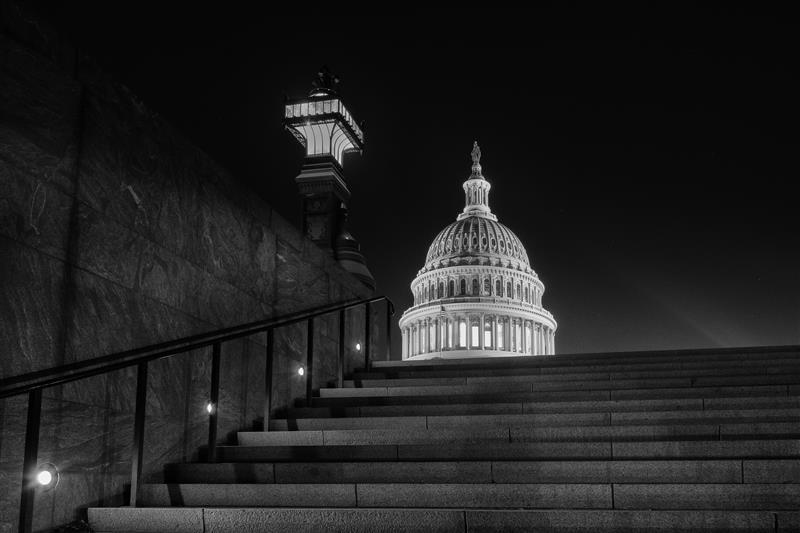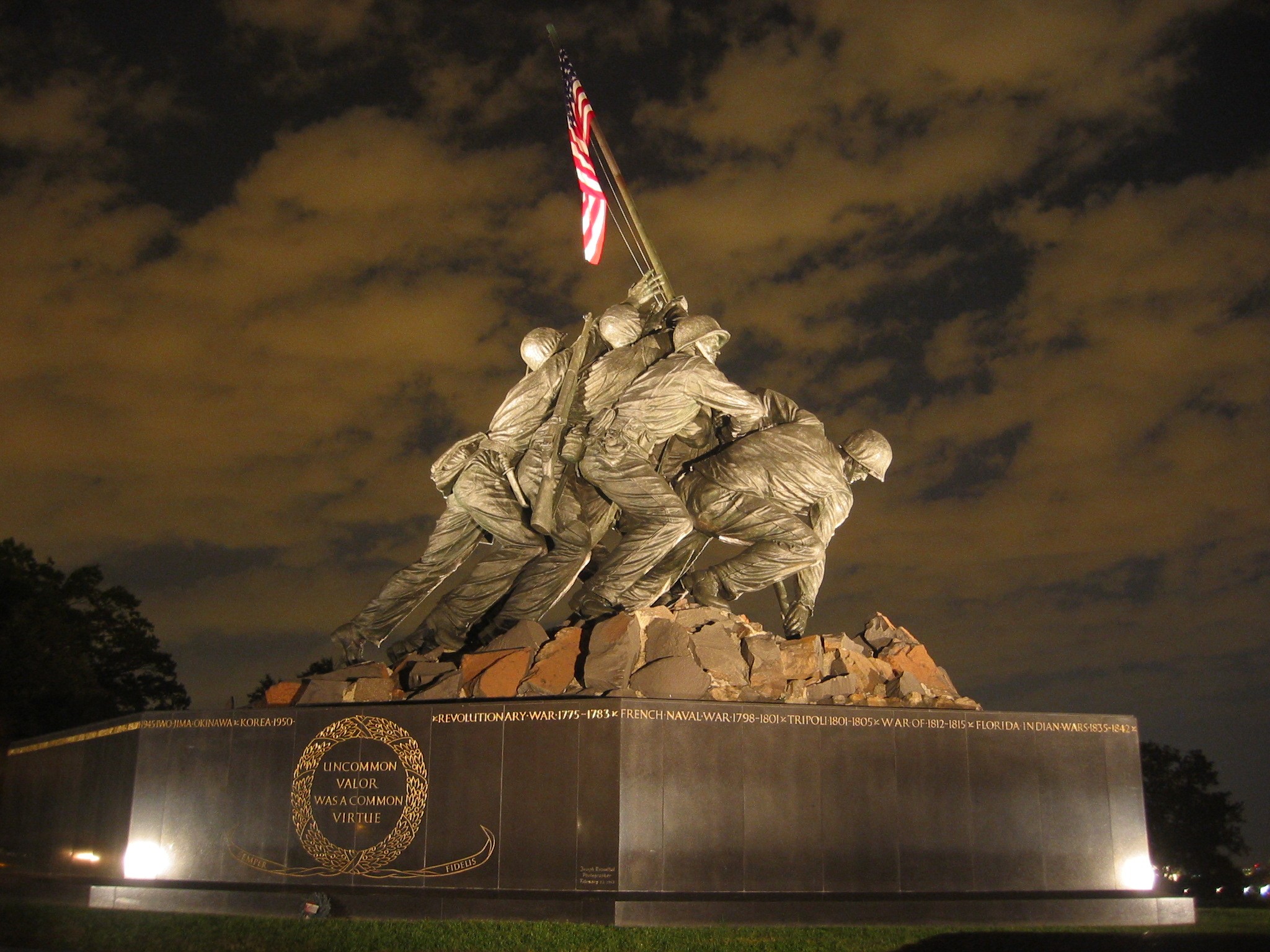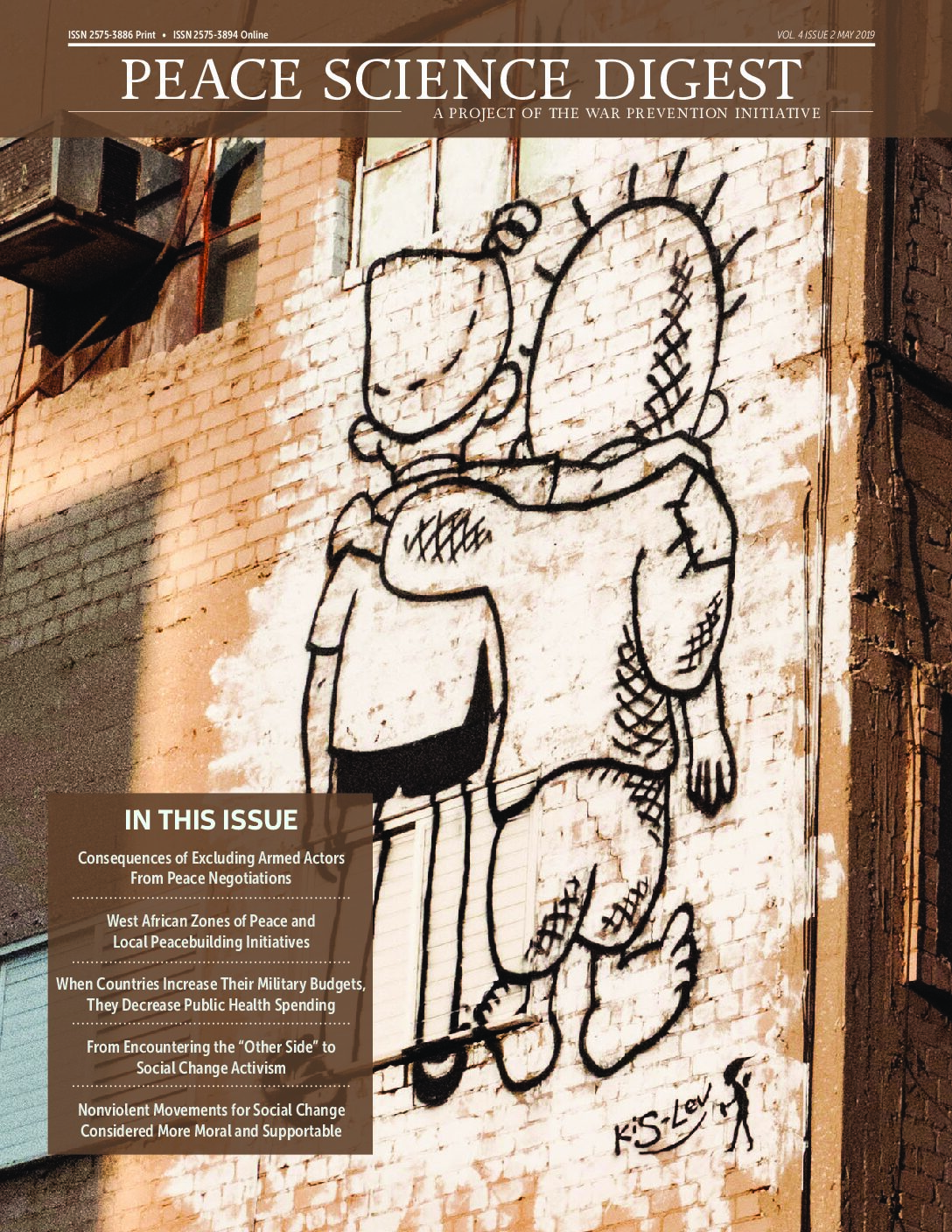
The Effects of Political Polarization on Political Violence in the U.S. and Other Democracies
This analysis summarizes and reflects on the following research: Citation: Piazza, J. A. (2023). Political polarization and political violence. Security Studies, 32(3), 476-504. https://doi.org/10.1080/09636412.2023.2225780 Talking Points Political polarization makes support for and the occurrence of political violence more likely. In the U.S., Republicans and Democrats who exhibit higher levels of … Read more

Support for Political Violence in the United States
This analysis summarizes and reflects on the following research: Armaly, M. T., & Enders, A. M. (2024). Who supports political violence? Perspectives on Politics, 22(2), 427-444. doi:10.1017/S1537592722001086 Talking Points Among a surveyed U.S. public: People who feel like victims (“perceived victimhood”), have authoritarian or populist beliefs, strongly identify with being white, … Read more
Forward from Search for Common Ground
Voters across the United States will go to the polls on November 5th to vote for their 47th President, a new Congress, and thousands of important officials and ballot measures at the state and local levels. The Presidential election is forecasted to be close, and the run-up has been marked … Read more

Event Summary: The Knowledge and Practice of Decolonial and Indigenous Environmental Peacebuilding
Event date: November 11, 2024 Hosted by War Prevention Initiative and the Environmental Peacebuilding Association In 2024, the War Prevention Initiative and the Environmental Peacebuilding Association released a Peace Science Digest Special Issue on Decolonial and Indigenous Approaches to Environmental Peacebuilding. This event was designed as a highly participatory, … Read more

Campaign Finance Reform: A Pathway to Peaceful Elections
by Padmini Das This essay was selected for publication as part of the War Prevention Initiative’s Essay Un-contest on Peaceful Elections. In any functioning democracy, elections are not just a mechanism for selecting leaders; they are also a crucial process for legitimizing governance and ensuring political stability. However, the integrity of … Read more

Votes, Voices, and the Far Right
by Irina Militaru This essay was selected for publication as part of the War Prevention Initiative’s Essay Un-contest on Peaceful Elections. It’s scorching hot, and I’m in a field in the middle of nowhere (i.e., the industrial zone of Frankfurt, couched between two factories and the highway), triple-checking if … Read more

Standing United in Wisconsin: Promoting Peaceful Elections in a Contested State
by Lisa Inks and Eli Kelling (with Urban Rural Action) with photographs by John Noltner This essay was selected for publication as part of the War Prevention Initiative’s Essay Un-contest on Peaceful Elections. Southeast Wisconsin not only sits at the epicenter in a swing state of what will be a … Read more

Building Peace midst Conflict: My Journey in South Sudan’s Path Towards Elections
by Lona James Luduro Elia This essay was selected for publication as part of the War Prevention Initiative’s Essay Un-contest on Peaceful Elections. As a young woman born in Yei who grew up in Juba, South Sudan, I have witnessed first-hand the tumultuous journey of my country’s quest for democracy. … Read more

The Reassuring Illusion of Victory in War
“Liturgies of triumph”—public rituals that symbolically reinforce and celebrate the idea that the U.S. always wins its wars, “embedded in national calendars, public commemorations, and team sports”—shape the understanding and practice of wartime, both producing an expectation for military victory and assuaging public anxieties that emerge from its absence in most contemporary warfare.

Justifying Violence with the “Less-than-Lethal Paradigm”
The “less-than-lethal paradigm” is a military strategy aimed at managing the popular perception of violence by using less deadly and more concealed methods to justify imperial actions in a way that aligns with the principles of liberal democracy.

How to Tell the Truth about Racial Violence: The Case of Mississippi’s Incomplete Truth Commission
Truth commissions were initially used as a tool in the immediate aftermath of a violent conflict or during political transitions but, as their popularity surged in the 1990s and early 2000s, they began to be applied to contexts within established democracies to address historic harms and injustices.

